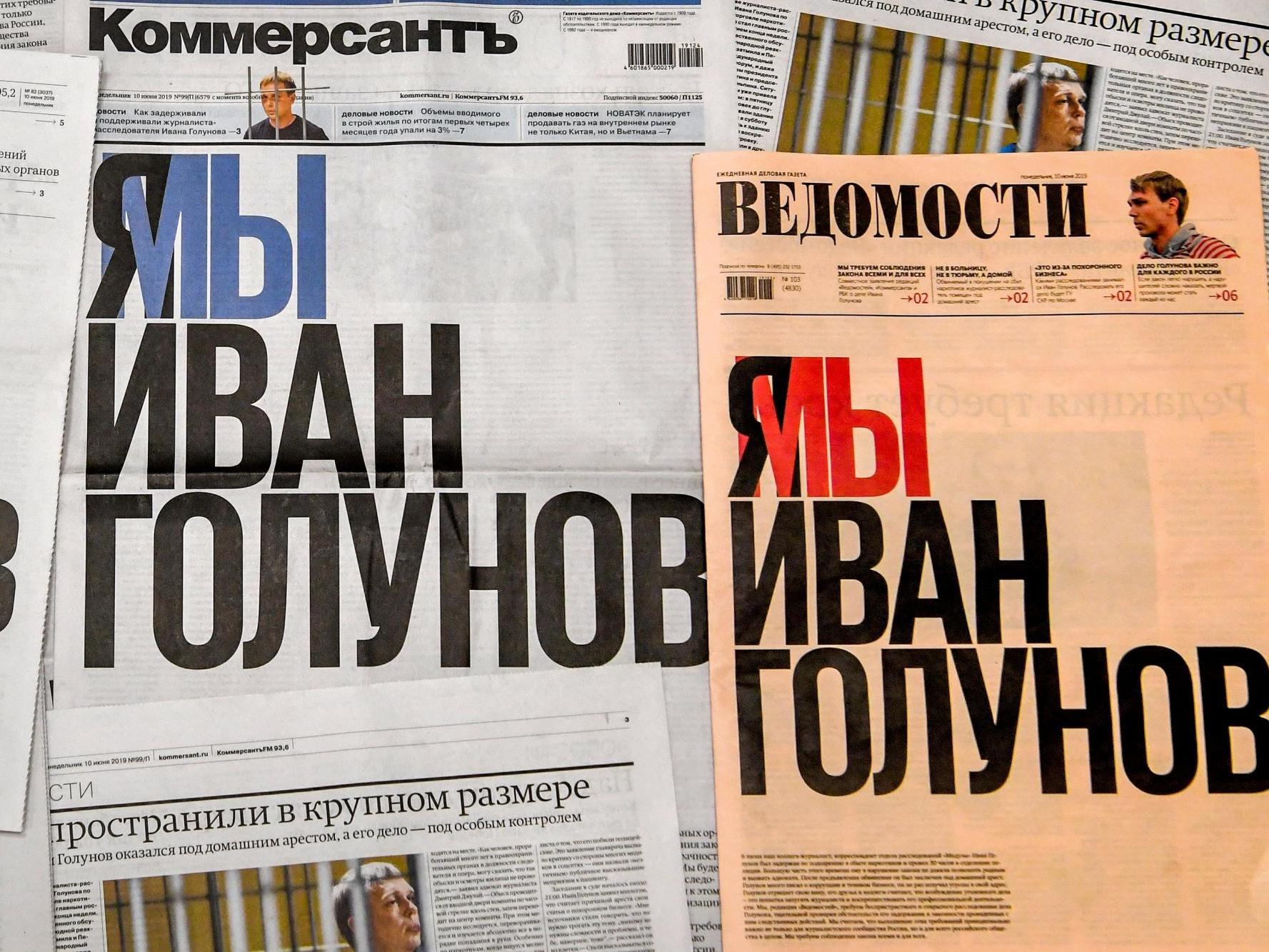How the Kremlin sentenced the Russian media to death by a thousand cuts
Like the frog being slowly boiled alive, changes weren’t enough to cause a fuss – until it was too late, writes Oliver Carroll


On Monday, five top editors walked out of Vedomosti, Russia’s top business newspaper, sealing the fate of yet another independent outlet at the hands of the Kremlin.
The longtime employees left in protest at censorship introduced by a new, Kremlin-friendly editor. In truth, the sharks had already been circling for several years.
Vedomosti was founded in 1999, the year Vladimir Putin came to power. It quickly built a reputation for honest reporting, precisely and fearlessly chronicling the rise of his new authoritarianism.
In the first decade of Putin’s rule, the Kremlin was almost entirely focussed on controlling television and mass media.
But in the years leading to the protests of 2011-12, their calculus changed. Elite, intellectual publications like Vedomosti showed they could seriously influence public opinion, and so they too became a target.
The Kremlin reasserted control through a long game of cunning and subversion. Sometimes the task was creating financial conflicts of interest via oligarchic newspaper owners. Other times it was making business impossible: cutting off advertising revenues or sending in health and safety inspectors.
Their interventions were incremental. Like the frog being slowly boiled alive, changes were rarely enough to cause a big fuss. But by the end of the process – once the impossible hostile takeover became real – democratic society was surprised at how much ground they ceded.
The revolution in Ukraine was the next major watershed for colleagues in the Russian media. When the Kremlin prepared its 2014 Crimean campaign, it first undertook a more local annexation – turning the Ria Novosti news agency into an unrepentant propaganda arm. A year later, as Russia stepped up military involvement in Ukraine, its parliament passed a bill limiting foreign ownership of media to 20 per cent.
That marked the beginning of the end for the foreign-owned Vedomosti. Although the title battled on in occasionally independent form, it was already half-dead, bleeding from a thousand cuts.
Ironically, its final taming came at a time of its least influence.
Like counterparts across the globe, Russians, and especially young Russians, are increasingly eschewing traditional media in favour of YouTube and social networks.
The Kremlin’s influence is notably limited here, and it knows it. In February, Nikolai Patrushev, Russian security chief and a close ally of Putin, lamented the lack of control over “information aggression [...] directed at youngsters”.
It would be naive to assume authorities won’t eventually find a way to catch up and control the narrative here too.
Yours,
Oliver Carroll
Moscow correspondent
Join our commenting forum
Join thought-provoking conversations, follow other Independent readers and see their replies
Comments